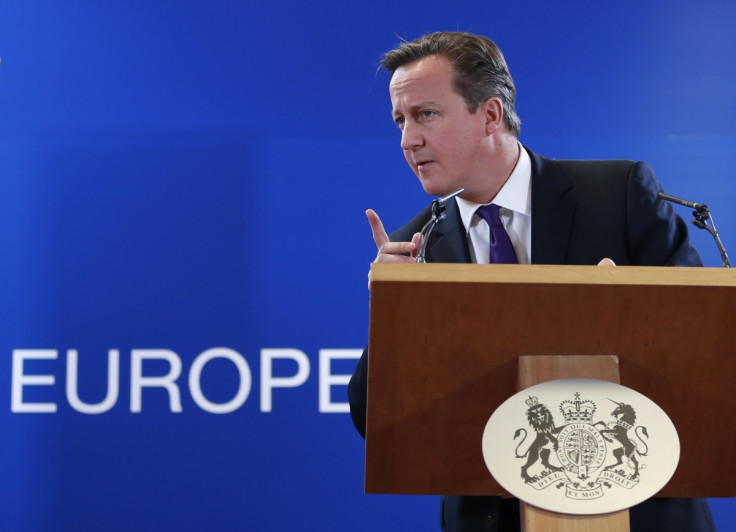EU referendum: David Cameron to grant Tory ministers freedom over historic vote

David Cameron is reportedly going to give his ministers a free vote over the forthcoming EU referendum. The prime minister's move will enable top Eurosceptic Tories to campaign for a Brexit while remaining in government once his renegotiation deal is done.
John Pienaar, BBC Radio 5 Live's political correspondent, said the Conservative leader will officially make the announcement on 5 January. The decision will come after pro-EU Lord Heseltine warned that Cameron could trigger a "civil war" at the top of the party if he gave ministers a free vote.
But the prime minister also faced splits within the Tory ranks if he did not offer the free vote as tens of Conservative MPs have joined the Vote Leave campaign, one of the two Brexit groups.
The likes of Iain Duncan Smith, Michael Gove and Theresa May have been tipped as Eurosceptic campaigners. But none of the high-profile politicians have committed to a side ahead of the referendum, which Cameron has promised to hold before the end of 2017.
The prime minister continues to renegotiate the UK's relationship with the EU ahead of the vote. But Cameron faced embarrassment on 4 January when think-tank British Future claimed that his plan to stop EU migrants in the UK from accessing benefits for at least four years would do little to stop rising net migration levels.
"The truth for the prime minister is that it will be extremely difficult to offer a clear route to achieving Theresa May's net migration target of 'tens of thousands' while we remain part of free movement – and impossible to guarantee a fall to those levels," said Sunder Katwala, the director of British Future.
"The prime minister should instead look closer to home and set out a plan to manage migration better, including integration and the impact on public services."
The latest opinion poll from YouGov for The Times, of more than 1,500 people between 17 and 18 December, put "leave" one point ahead of "remain" (42% versus 41% respectively). But there has been some significant disparity between online and phone polls around the EU referendum.
© Copyright IBTimes 2025. All rights reserved.






















